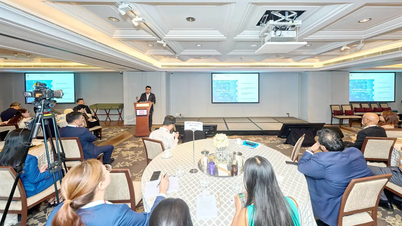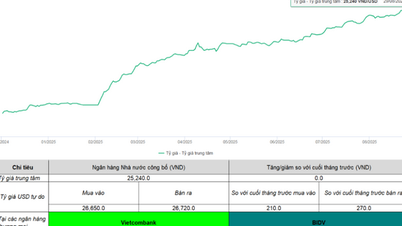
Today's Chinese Gen Zers Are Ambitious But Apathetic, Educated But Lonely - Photo: DFC Studio
Considered a potential customer group for the luxury consumer industry, today's Chinese Gen Z young people are ambitious but apathetic, educated but lonely, liberated but facing many difficulties and limitations of contemporary social norms.
Chinese Gen Z flocks to cities
According to the study, more than half (56%) of Gen Z in China reside in Tier 1 and Tier 2 cities, clearly highlighting the preference for urban living compared to the smaller Tier 3 cities preferred by 54% of Gen X.
The trend of moving to cities is not simply a search for better jobs and a modern lifestyle; it is a deliberate choice, reflecting the aspirations of a generation eager to take advantage of the opportunities that China's sprawling cities offer.
Notably, about half of Gen Z has a bachelor's degree, with 22% having a master's degree or higher, far surpassing the educational achievements of millennials.
Research shows that 60% of millennials (born between 1981 and 1996) and Generation Z (born between the late 1990s and late 2010s) have a college or graduate degree, nearly double the rate of Gen X (34%, born between 1965 and 1981) who have achieved the same level of education.
Compared to the conservative views of older generations, Gen Z is relatively open when it comes to talking about gender, marking a significant change. 8% identify as gay or bisexual, nearly three times the rate of Generation X and millennials.
But this liberation comes with a paradox. Gen Zers are lonelier, live alone, and have fewer close friends. In 2023, a survey by Chinese social app Soul found that a third of young users said they “almost always feel lonely.” The average person has just 2.5 close friends.
China's Generation Z is experiencing a "friendship recession," whether due to busy work schedules, geographical distance, or social isolation caused by the proliferation of online apps.
A generation at the crossroads
China’s Generation Z is the embodiment of contradictions – a generation that is at odds with tradition and modernity. This group of consumers is redefining consumer behavior, with a mix of reverence for cultural traditions and a modern, self-expressive bent.
Nearly 90% of Gen Z support reducing carbon emissions, demonstrating a strong environmental consciousness. However, paradoxically, these same young people prefer gas-guzzling cars. This choice highlights the conflict between environmentally friendly attitudes and personal ambitions.
In addition, young people have also significantly reduced their interest in Chinese-made cars and traditional liquor, and instead switched to foreign brands.
Despite their ambition and high education, Generation Z is less active than Generation X. More than 70% of Gen Zers exercise less than 2 hours per week, raising questions about the health impacts of an urban lifestyle: sedentary, and immersed in work or study.
Another noticeable shift is in attitudes toward marriage. 44% of Gen Zers are not interested in marriage, double the rate of millennials. They also express deep concerns about the financial and career implications of becoming parents, especially women. These Gen Z priorities reflect deeper economic and social pressures.
Gen Z women are much more career-oriented, 18 times more likely than millennials to prioritize career advancement over having children.
 Gen Z brings parents to interviews, companies are frustrated
Gen Z brings parents to interviews, companies are frustratedSource



![[Photo] Snail noodle dish makes Liuzhou city, China famous](https://vphoto.vietnam.vn/thumb/1200x675/vietnam/resource/IMAGE/2025/8/30/56e738ed891c40cda33e4b85524e30d3)
![[Photo] International military delegation participates in rehearsal at Ba Dinh Square](https://vphoto.vietnam.vn/thumb/1200x675/vietnam/resource/IMAGE/2025/8/30/1fe13d6df1534ce8a798fa91962ed487)



![[Photo] Hanoians stay up all night waiting for the parade rehearsal on the occasion of the Great Festival](https://vphoto.vietnam.vn/thumb/1200x675/vietnam/resource/IMAGE/2025/8/30/d14625501aee42e28bbd5227a1ff2b11)
























































































Comment (0)